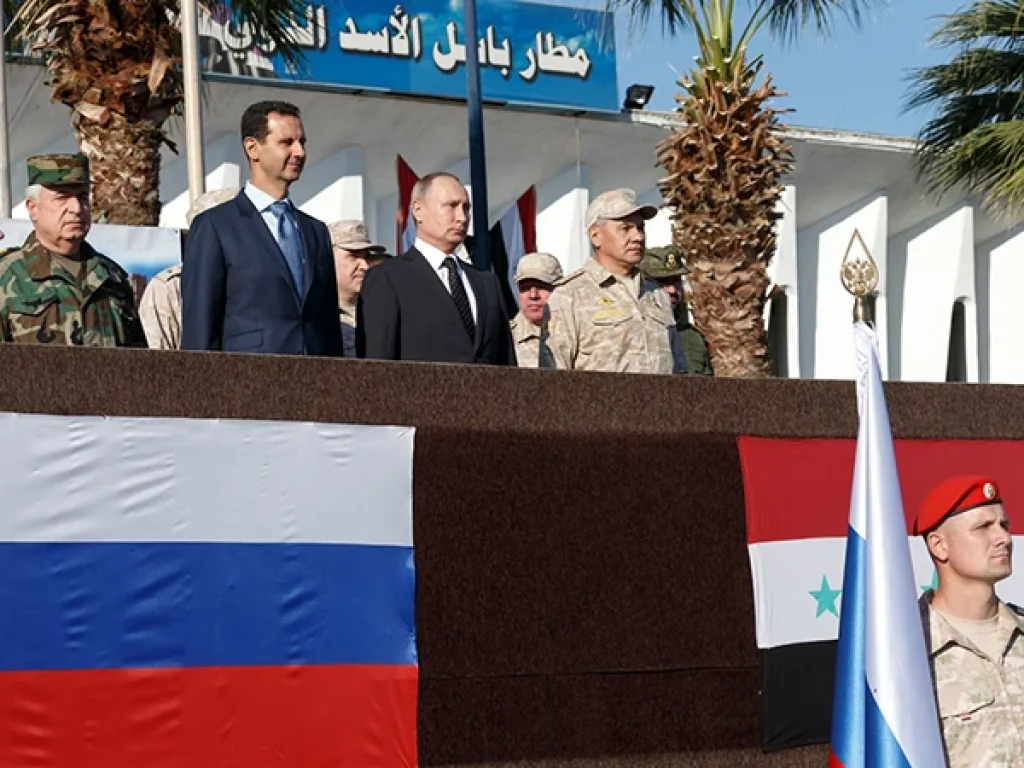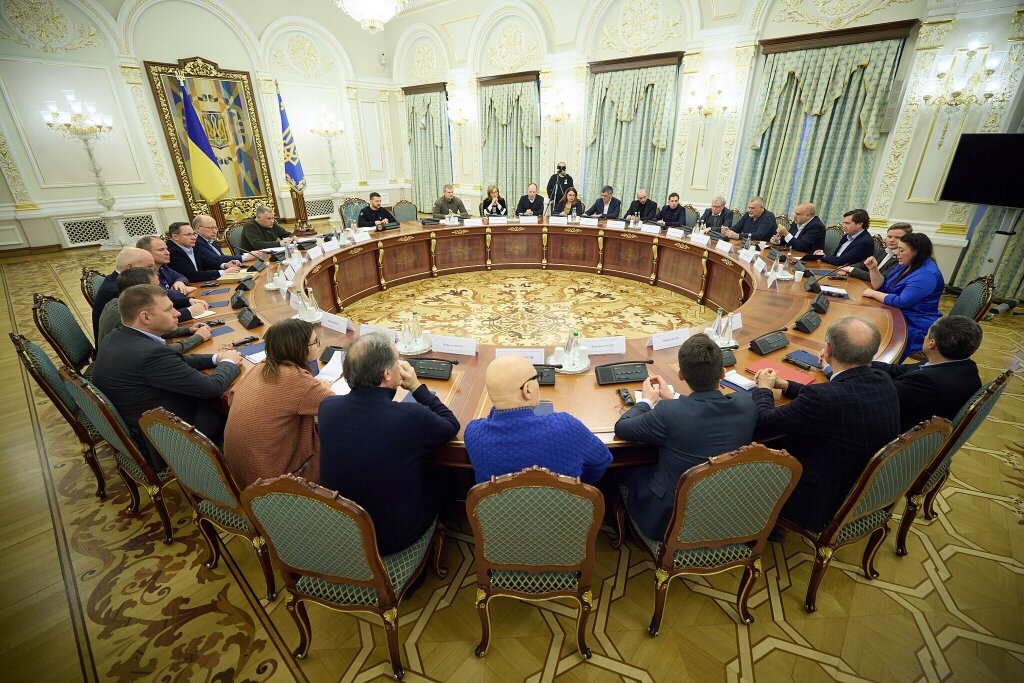This event is online only.
Join us for a meeting of the New York-Russia Public Policy Series, co-hosted by the Harriman Institute at Columbia University and the New York University Jordan Center for the Advanced Study of Russia.
The collapse of the regime of Bashar al-Assad, a long-term ally of Russia, sent geopolitical ripples across the Middle East and has led to widespread speculation that Russia’s role in the region as a Great power has been undermined. Nevertheless, Russia continues to pursue partnerships with regional powers like Iran, Turkey, Saudi Arabia and the UAE, while it appears it might still manage to retain access to its military facilities in Syria. How has Moscow reacted to developments in the region and how will it adjust its Middle East strategy? What lies next for the emerging Russia-Iran partnership? Please join us for the next Russia Public Policy series event on Monday February 24th where a group of distinguished researchers will address these questions.
This event is supported by a grant from Carnegie Corporation of New York.
Nicole Grajewski, Fellow in the Nuclear Policy Program at the Carnegie Endowment for International Peace
Dimitar Bechev, Senior Fellow at Carnegie Europe
Moderated by:
Joshua Tucker, Director of the Jordan Center for the Advanced Study of Russia at New York University
Alexander Cooley, Claire Tow Professor of Political Science & Vice Provost for Research, Libraries and Academic Centers, Barnard College
Nicole Grajewski is a fellow in the Nuclear Policy Program at the Carnegie Endowment for International Peace. Her research examines Russian and Iranian policies in the global order, with a particular focus on Russian nuclear strategy, Iran’s nuclear decision-making, contestation in the non-proliferation regime, and nuclear deterrence. She is completing her first book on the evolution of the Russia-Iran relationship from Syria to Ukraine, with Hurst Publishers.
Dimitar Bechev is a senior fellow at Carnegie Europe. He is also the director of the Dahrendorf Programme on Europe in a Changing World at the European Studies Centre, St Antony’s College, University of Oxford. Bechev is the author of “Turkey under Erdogan” (Yale University Press, 2022), “Historical Dictionary of North Macedonia” (Rowman, 2019), and “Rival Power: Russia in Southeast Europe” (Yale UP, 2017) as well as co-editor of “Russia Rising: Putin’s Foreign Policy in the Middle East and North Africa” (Bloomsbury, 2021). He has also published numerous academic articles and policy reports. His past positions include lecturer at the University of North Carolina at Chapel Hill and senior policy fellow, head of the Sofia office at the European Council on Foreign Relations.
Samuel Ramani is an Associate Fellow at the Royal United Services Institute (RUSI) think tank in London and the CEO of Pangea Geopolitical RIsk (PGR). Before joining RUSI in 2021, Samuel received his DPhil in International Relations at St. Antony’s College, University of Oxford. Samuel is the author of two recent books on Russian foreign policy, which were jointly published by Hurst in the UK and Oxford University Press in the US: “Russia in Africa: Resurgent Great Power or Bellicose Pretender” and “Putin’s War on Ukraine: Russia’s Campaign for Global Counter-Revolution.” The first edition hardbacks of both books were published in 2023 and the second paperback editions were released in 2024. Samuel is currently finishing another book on US foreign policy towards Africa which will be published in August 2025 by Oxford University Press and Hurst. Samuel is a regular contributor to major print media outlets such as Foreign Policy, Foreign Affairs, the Washington Post and The Telegraph, and broadcast media outlets like the BBC, CNN International, Sky News and Al Jazeera. Samuel has advised the US Department of State, US Department of Defence, UK Foreign and Commonwealth Office and NATO Headquarters on international security issues spanning from Russia’s global power projection to the wars in Syria, Libya and Afghanistan.
Register for Zoom. Watch on YouTube.
Image: Mil.ru, CC BY 4.0 <https://creativecommons.org/licenses/by/4.0>, via Wikimedia Commons



